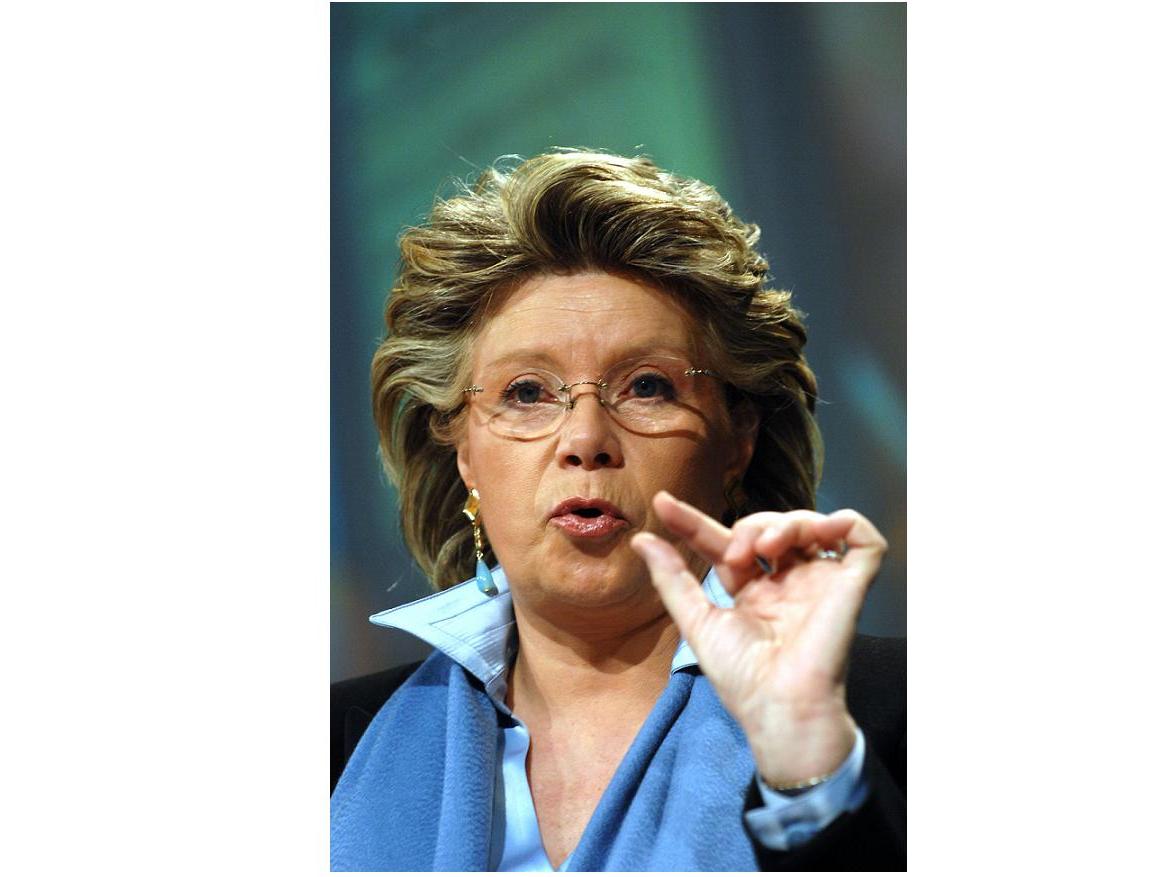CeBIT 2007: EU says no RFID regulation needed
Industry and market will sort it out, EU commissioner says

The European Union ( EU ) will not regulate the use of Radio Frequency Identity (RFID) technology. That was the message from EU Commissioner Viviane Reding when she spoke at the CeBIT show here in Hannover this afternoon.
RFID tags are used to wirelessly track items like CDs and clothes sold in shops and can remain in place when buyers take those goods home. They also have myriad other uses. Their growing popularity has, however, raised privacy concerns.
Reding, EU Commissioner for Information, Society and Media, said in her speech that she was "very excited" about the new smart tags, and looks towards creating a global RFID standard.
The EU wants to give the telecoms industry the opportunity to "go for it" when it comes to RFID. "Usually I introduce new regulations, but not today," Reding said in her keynote speech.
At last year's CeBIT show, Reding said the European Commission would investigate the pros and cons of RFID technology. She admitted today that she only heard about the technology for the first time when making last year's statement. But she grew enthusiastic about RFID following a demonstration showing its potential, and continues to muse about the technology.
"I have seen what the industry has up its sleeves, and there are some real 'killer applications' on the way," Reding said.
According to Reding, no regulation on RFID is needed, despite concerns about the consequences it may have on people's integrity and privacy. Frequency use and standards can also exist without regulation, as the Commissioner is convinced that the industry can solve any problems itself.
Get daily insight, inspiration and deals in your inbox
Sign up for breaking news, reviews, opinion, top tech deals, and more.
"I believe that the industry has a vested interest to make it work. RFID will only work if the communication between different systems and devices happens smoothly," Reding said. She added that she is liaising with the US government and high officials in Russia to ensure that the technology can be used on a global scale.
She said both economics and benefits to society play a part in a future embrace of RFID, or "smart radio tags" as the Commission chose to call it. She said the tags could be used for everything from fighting piracy to improving health services.
Reding said she is looking to set up a group with key industry representatives to discuss how to best use the RFID technology. It will suggest a number of recommendations on how to handle integrity and data protection issues. She stressed that no individual should become subject to RFID use without their knowledge, or against their will.
"We believe in transparency and informed citizens. We have to give people a choice," Reding said.
RFID is big business at this year's CeBIT, where an entire hall is devoted to the wireless technology.